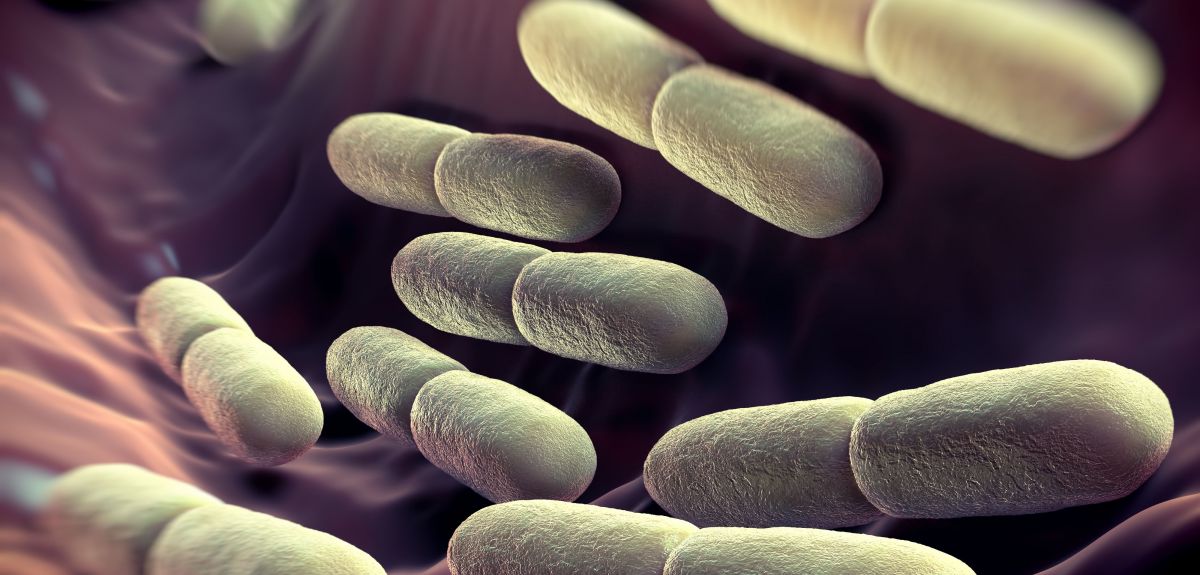
Image credit: Shutterstock
Competition between 'good bacteria' important for healthy gut, say researchers
The vital ecosystem of bacteria in the human gut operates like a jungle, with competition between microbes helping maintain the stability necessary to keep us healthy.
That's according to scientists at Oxford University, who have used mathematical modelling to work out how hundreds of bacteria species are able to co-exist successfully.
In their report, the researchers show that – contrary to popular assumption – cooperation between species has the effect of destabilizing the system. Instead, a competitive environment between 'good bacteria' helps to maintain stability by counteracting the destabilizing effect of high species diversity.
The researchers go on to speculate that people – or hosts – may help maintain this natural stability in the gut by acting as 'ecosystem engineers' who intervene in a number of ways.
The research is published in the journal Science.
Kevin Foster, Professor of Evolutionary Biology in the Department of Zoology at Oxford University and corresponding author of the report, said: 'We have known for some time that people carry vast communities of bacteria on and inside their bodies – particularly in the digestive tract, where these bugs are extremely important for our overall health and wellbeing. However, little is known about how these communities are able to remain stable over a long period of time.
'The assumption has always been that because these bacteria are doing us good, the communities must be cooperating with one another. What our work suggests, based on a wide-ranging mathematical analysis, is that competition may be key to a healthy gut.
'Rather than cooperating like plants and bees, whereby a reduction in one species will drag down the other, we think that the bacteria act more like trees competing in a dense jungle.'
Understanding the massive communities of microbes that we carry inside us – the microbiome – is fundamental for our health because they provide us with many benefits, including the breakdown of food, protection from pathogens, and maintaining a healthy immune system.
The gut microbiome is often noted for its ecological stability. Different people may carry different microbial species, but any one individual tends to carry the same key set of species for long periods. This stability is considered critical for host health and wellbeing, and, correspondingly, major shifts in microbial community composition are often associated with ill health.
Professor Foster added: 'The hypothesis we put forward is that hosts actively intervene to help maintain the stability created by the competitive environment.
'One obvious way to do this is through the immune system suppressing overabundant bacteria, but another option is to keep different species of good bacteria apart so they don't end up overly reliant on one another.'
The research was funded by the European Research Council (ERC), and the analyses were carried out by graduate student Katharine Coyte and postdoctoral fellow Dr Jonas Schluter.
The article 'The ecology of the microbiome: Networks, competition, and stability' is published in the journal Science.
 Oxford launches first human aerosol TB challenge trial
Oxford launches first human aerosol TB challenge trial
 Rees Centre report reveals challenges faced by Black and Asian kinship carers
Rees Centre report reveals challenges faced by Black and Asian kinship carers
 Expert Comment: The Modern Slavery Act at 10 – what have we learnt for human rights?
Expert Comment: The Modern Slavery Act at 10 – what have we learnt for human rights?